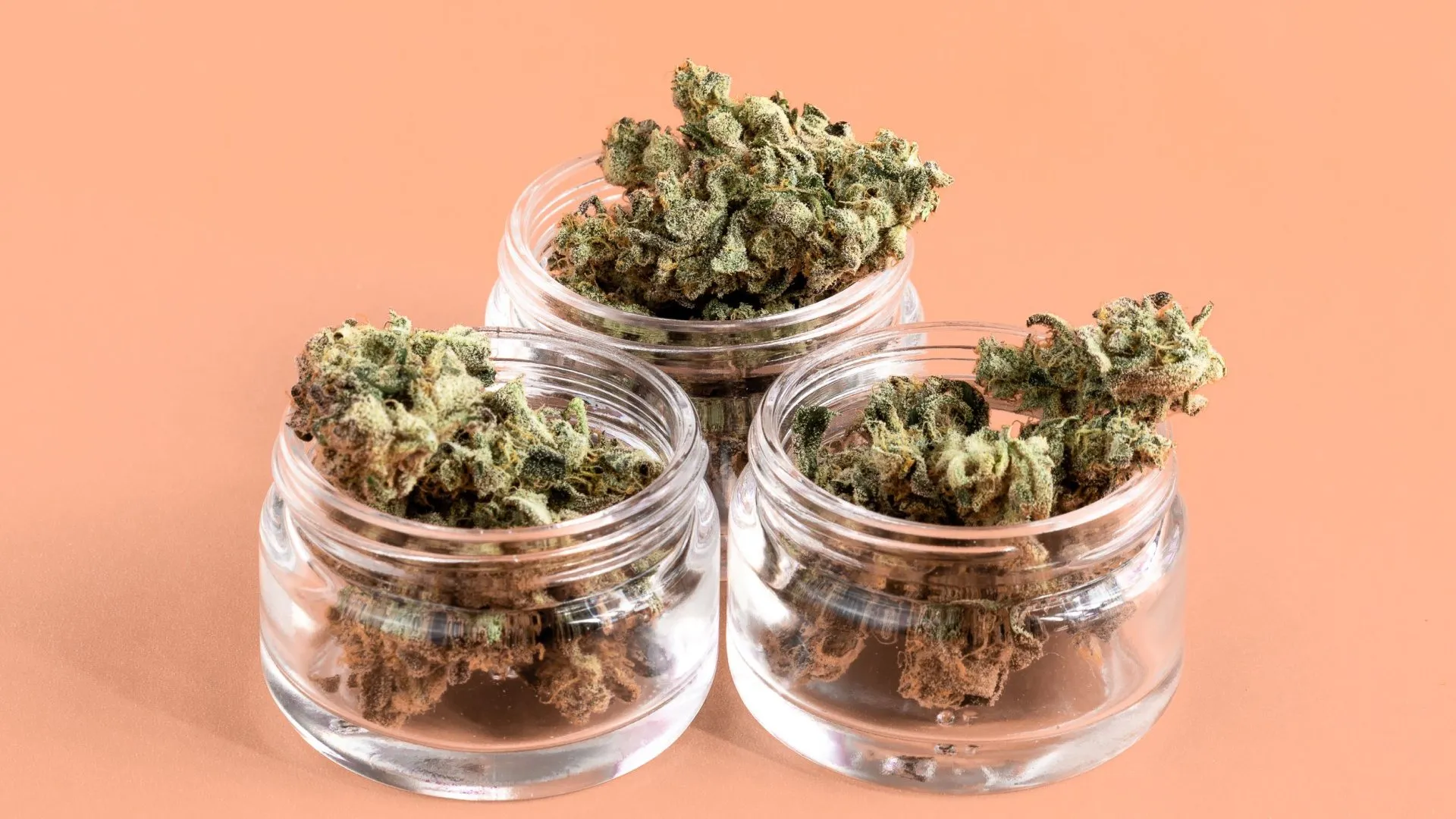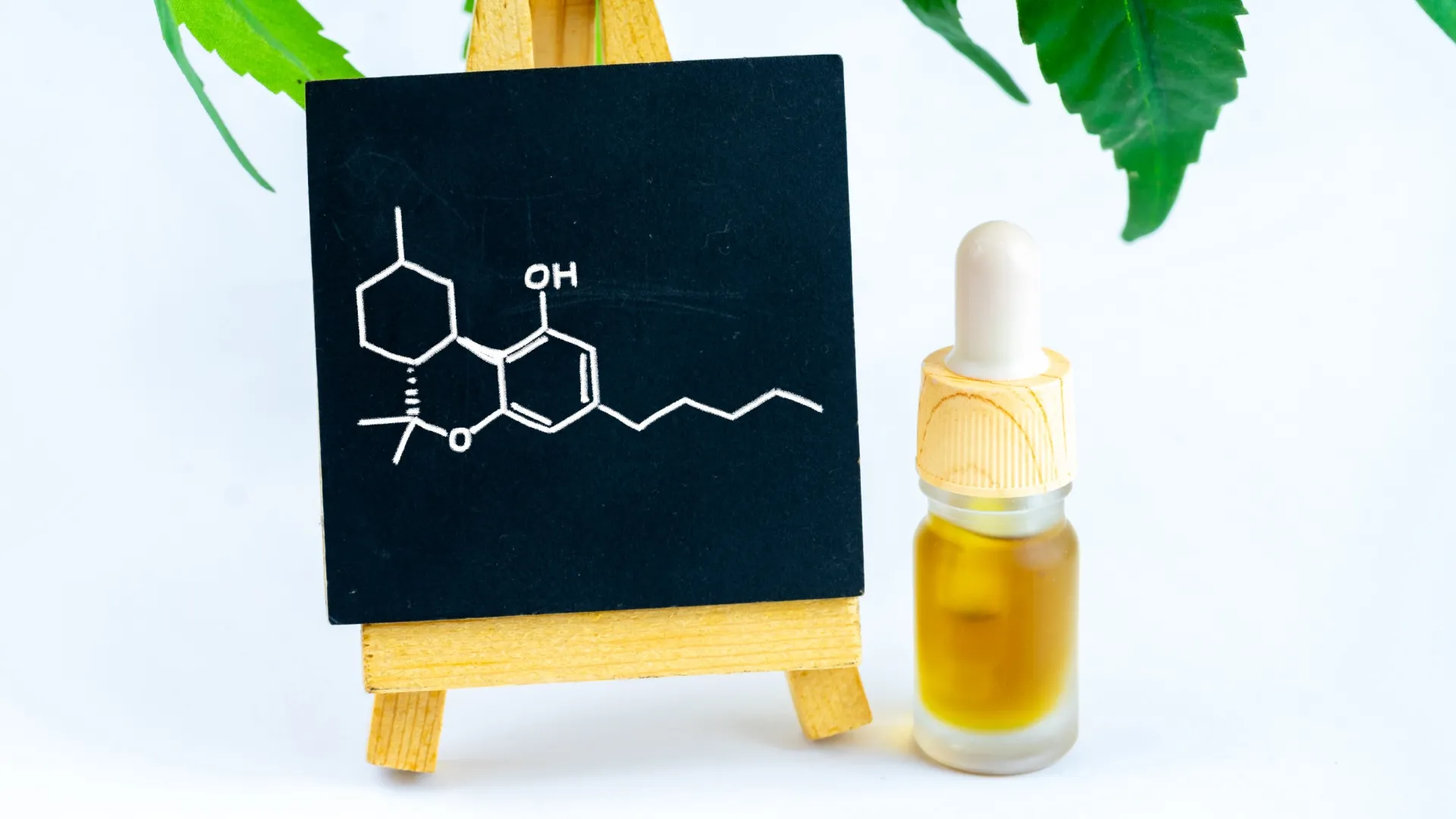Hemp-derived cannabinoids like HHC (hexahydrocannabinol), Delta 8 THC, and Delta 9 THC have gained a lot of popularity in the market today.
Veterans or newbies who consume these products need help knowing more about their implications and benefits. But they get confused about whether it’s the right one for them or not.
That’s why we have solidly compared Delta 8 vs. Delta 9 vs. HHC. You’ll learn how potent each one is, how they differ, what kind of side effects HHC has, and much more.
So, let’s cut to the chase.
Potency Comparison Between HHC, Delta 8, and Delta 9
When comparing the strength and effects of Delta 9, HHC vs Delta 8 potency, knowing how each affects the body’s endocannabinoid system and the experiences they create is essential. Let’s break it down;
Delta 9
Delta 9 is the strongest of the three, known for its powerful effects on the mind. It’s the main type of THC found in cannabis and gives the classic high feeling.
Folks generally feel intense happiness, changes in how they perceive time and space, increased hunger, and sometimes anxiety or paranoia, especially with high doses.
Delta 8
Delta 8 is weaker than Delta 9. It’s a less common form of THC found naturally in cannabis, but it can also be synthesized from CBD derived from hemp.
Delta 8 gives a gentler high compared to Delta 9. Folks often feel more clear-headed, less intense happiness, and fewer instances of anxiety or paranoia. It’s a popular choice for those who want a milder experience or react badly to Delta 9.
HHC (Hexahydrocannabinol)
HHC is a form of THC that’s similar to Delta 9 in strength, although some folks say it’s a bit weaker. The strength can depend on the specific type of HHC.
HHC delivers effects like happiness, relaxation, and altered sensory perception. Some find HHC to be more calming and less likely to cause anxiety than Delta 9. However, since there’s little research on HHC, its effects are not as well-documented as those of Delta 9 and Delta 8.
Comparing their Chemical Structures
The chemical structures of HHC, Delta 8, and Delta 9 are closely related but have some differences that affect how they interact with the body’s endocannabinoid system. To understand how small changes in molecular structure can affect a compound’s biological activity, let’s look at them;
Delta 9 has a double bond — on the ninth carbon chain of its molecular structure. This positioning of the double bond is important for the compound’s affinity for CB1 receptors in the brain for its strong psychoactive effects.
Delta 8, similar to Delta 9, has a double bond — on the eighth carbon chain. This slight shift affects the molecule’s shape and its interaction with CB1 receptors.
HHC is a form of THC that has been hydrogenated. The process of hydrogenation adds hydrogen atoms to the THC molecule, breaking the double bond present in Delta 8 and Delta 9.
The location of double bonds in Delta 8 and Delta 9 and the absence of double bonds in HHC affect how these compounds interact with cannabinoid receptors, controlling their potency and psychoactive effects.
Note – The difference between HHC vs Delta 9 is; Delta 9 is the strongest, Delta 8 is milder, and HHC offers a mixed profile due to its hydrogenated structure.
Some Common Effects of HHC and THC
The side effects of HHC are not as well studied as those of THC, and they can differ greatly from person to person. Additionally, the legality and regulations surrounding these substances vary depending on where you are, affecting their availability and quality control.
Psychoactive Effects
- All three compounds can induce feelings of euphoria. However, the intensity may depend, with Delta 9 being the strongest, followed by HHC (depending on the isomer), and then Delta 8.
- You may experience changes in your perception of time, visual and auditory perception, and heightened sensory experiences.
- Short-term memory issues, difficulty concentrating, and impaired judgment can occur, especially at higher doses.
Physical Effects
- Dry mouth is a common side effect, often called cottonmouth, experienced by Delta 8, Delta 9, and HHC users.
- The vasodilatory effects of these cannabinoids can lead to red, bloodshot eyes.
- Increased appetite is associated with THC but can also occur with HHC use.
- You may experience dizziness or lightheadedness, particularly with higher doses.
Potential Negative Effects
- While Delta 8 is often known for its lower propensity to induce anxiety, both Delta 9 and HHC (depending on the individual’s response) can cause anxiety or paranoia in some users, especially at higher doses.
- Although THC is often used to combat nausea, in some cases, especially with newbies or in high doses, it can cause nausea.
- You may experience fatigue or lethargy as the effects wear off. However, this can depend on the dose and the individual’s sensitivity.
Long-term Use and Dependency
- Regular use of THC or HHC can lead to tolerance, requiring higher doses to achieve the same effects.
- You may experience withdrawal symptoms when you stop using these substances, including irritability, mood swings, sleep disturbances, and physical discomfort.
Like any substance that affects the mind, it’s important to use them responsibly, be mindful of how your body reacts, and consider the legal consequences. It’s also a good idea to talk to a healthcare provider before using HHC or THC, especially if you have existing health issues or are taking other medications. This way, you can make informed decisions about your health and well-being.
Legal Status & Implications for Drug Testing
16 states allow using Delta 9, while 38 states allow for HHC and Delta 8. With the 2018 Farm Bill, hemp-derived cannabinoids with a THC content of less than 0.3% are federally legal. However, since then, 12 states have decided to impose restrictions or bans on the sale and possession of Delta 8. Although there is currently no specific legislation for HHC in the United States, it’s believed that states with Delta 8 restrictions would likely apply similar bans to HHC.
So, it’s safest to assume that HHC has the same laws as Delta 8.
When it comes to drug testing, both Delta 9 and Delta 8 can trigger positive results due to their similar chemical structures, with potential legal and employment risks. However, the detection of HHC remains to be determined as it is a relatively new compound with limited studies. While some anecdotal reports suggest it may not be detected as easily, this is not guaranteed. There’s a risk of testing positive for HHC, especially as testing methods evolve.
Where Can I Legally Purchase HHC, Delta 8 & Delta 9 Products?
When it comes to legally purchasing HHC, Delta 8, and Delta 9 products, you have several options available. You can find them in dispensaries, online stores, or specialty shops. But D8Gas.com is a great place to go for an easy and wide selection. We offer a variety of HHC, Delta 8, and Delta 9 products in one spot.
If you’re curious about HHC vs THC products, check out the whole collection available for your needs with your favorite strains. You’ll find tons of products, including gummies, pre-rolls, disposable vapes, blunts, flowers (for smoking), and much more. D8 Gas simplifies the process, ensuring customers can easily find and purchase the cannabinoids they desire with confidence and convenience.
Try Our Tried-and-Tested HHC, Delta 8, and Delta 9 Products With Confidence!
FAQs – Frequently Asked Questions
Q. Can I use HHC, Delta 8, or Delta 9 THC for medical purposes?
While some users report therapeutic benefits, such as pain relief and anxiety reduction, the efficacy and safety for medical use depend on individual conditions and should be discussed with a healthcare provider, especially in areas where Delta 9 is legal for medical use.
Q. How long do the effects of HHC, Delta 8, and Delta 9 THC last?
The duration of effects can depend on the method of consumption, dosage, and individual metabolism. Generally, inhaled products (vaping or smoking) have effects that last 2-3 hours, while edibles can last much longer, up to 6-8 hours or more.
Q. Are there any medical benefits to using HHC, Delta 8, or Delta 9 THC?
Delta 9 has been studied and is used in some regions for medical purposes, including pain relief, nausea control, and appetite stimulation. Delta 8 is reported to have similar but milder therapeutic effects. HHC’s medical benefits are less understood due to limited research, but it may offer some of the same benefits as THC. However, more studies are needed to fully understand their therapeutic potential and safety.
Q. Is it legal to drive after using HHC, Delta 8, or Delta 9 THC?
No, it is not legal or safe to drive under the influence of any psychoactive substance, including HHC, Delta 8, and Delta 9. These compounds can impair your ability to drive by affecting reaction time, coordination, and judgment.



